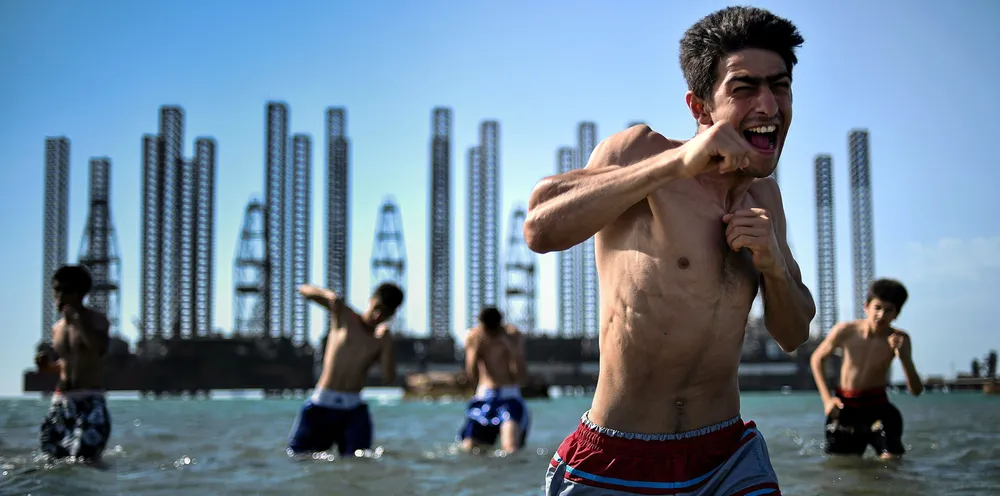Offshore wind wades into Caspian as IFC inks industrial transition deal with Azerbaijan
World Bank corporation signs memorandum with Azeri energy ministry with eye on developing sector around technical resource put at over 150GW

The Caspian Sea’s profile as an emerging offshore wind province has been underlined by the signing of a new memorandum of understanding between the International Finance Corporation (IFC) and Azerbaijan’s ministry of energy that has the mission of facilitating the historic oil basin’s energy transition to clean energy production off its coast.
Green is the new black. Subscribe to Accelerate
Get the market insight you need into the global oil & gas industry's energy transition – from the new newsletter from Upstream and Recharge. Sign up here
The IFC, part of the World Bank, estimates capturing some large slice of a technical offshore wind energy potential in Azerbaijan at 157GW – with the only turbines currently turning, some 66MW (according to IRENA), all onshore – would “unleash this and transition from oil & gas to renewable energy”, to cut the country’s greenhouse gas emissions and “vulnerability” to volatile crude markets.
Azeri energy minister Parviz Shahbazov stated: "Renewable energy has been determined… as one of the significant priorities of Azerbaijan's socio-economic and diversified development course, as well as achieving a clean environment by 2030. “The fact that renewable energy has a significant position in production and consumption makes it necessary to use the offshore wind energy potential.”
“The rich energy resources of the Caspian Sea are an important source not only for the development of the hydrocarbon industry, but also the green energy sector.
The MoU will lead-off by drafting a “comprehensive roadmap” for the development of offshore wind industry, with the IFC supporting the ministry in “attracting and building sustainable public private partnerships in the sector”.
Wiebke Schloemer, IFC’s director for Europe and central Asia, said: “One of IFC’s strategic priorities in Azerbaijan is to support the country’s move to a new private-sector led growth model. Helping the nation – rich in oil and gas resources – explore and develop offshore wind energy can increase private sector participation, while also supporting energy transition in a sustainable manner.
“This will play a catalytic role, strengthening Azerbaijan’s infrastructure and tackling climate change.”